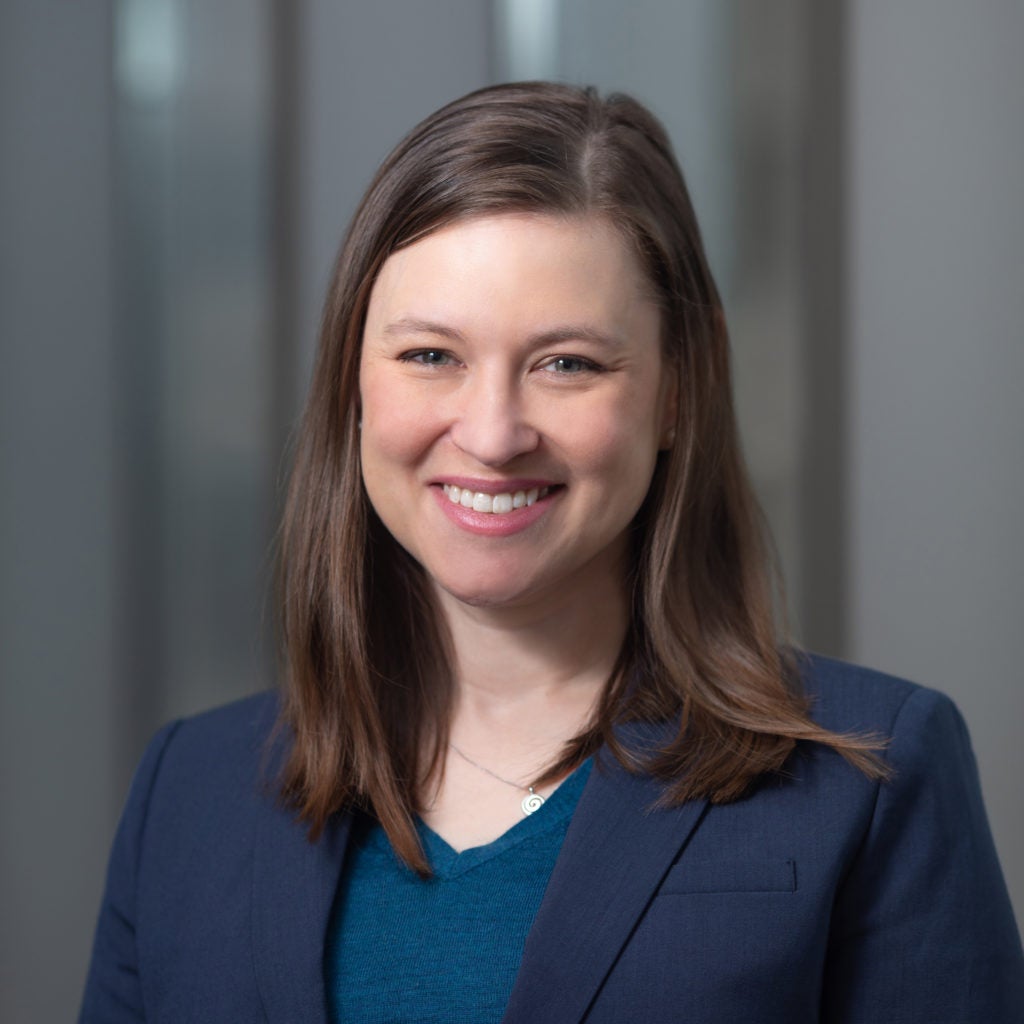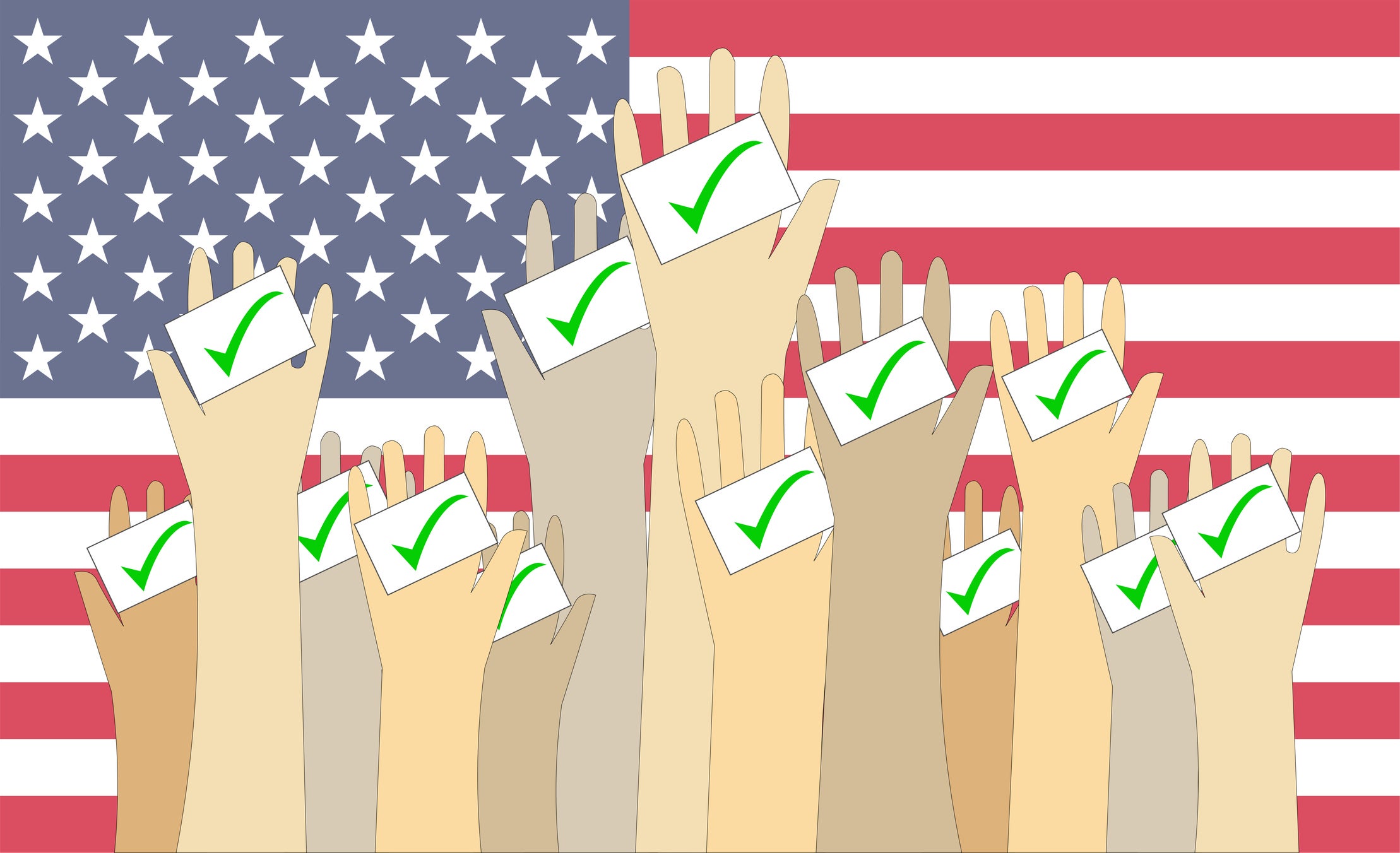In a Q&A, Ruth Greenwood, founding director of Harvard Law School’s new Election Law Clinic, shares what she believes are the most urgent issues in election law.
Harvard Law Today recently spoke to Greenwood about these issues, the new clinic and its value to students, and why she thinks it is important to train a new generation of lawyers to practice in this burgeoning field.
Harvard Law Today: The 2020 U.S. presidential election faced a number of disruptions, from a global pandemic to the very integrity of elections being challenged. What were some of the lessons learned from last year?
Ruth Greenwood: We withstood two huge shocks to the election system in the last year, with the global pandemic and the events culminating in the January 6 riot, both of which could have prevented the 2020 election from being free and fair. But the foundations of our democracy held. The election administration system was both strong and nimble enough to adapt to voting during a global pandemic; and our elected officials tallied votes accurately and refused to allow mob violence to undermine the integrity of the election.

Visiting Assistant Clinical Professor of Law Ruth Greenwood Credit: Lorin Granger
Sadly, our democracy is still struggling in many ways. From gerrymandering to voter suppression to big money in politics, our electoral system regularly results in the misalignment of voters with their legislators. Whether it’s Democrats in Illinois taking an aggressive approach to redistricting or Republicans bucking public opinion in Wisconsin, time and again we see legislators manipulating the rules of the game to maintain power and leaving “we the people” struggling to hold elected leaders to account. Even without a pandemic or violence, our democracy needs help, and I know the students of the Election Law Clinic will rise to the challenge.
HLT: There have been developments with H.R.1. and the Supreme Court recently heard a new challenge to the Voting Rights Act. Can you explain what the case is about and what’s at stake?
Greenwood: The Brnovich case is the first time the Supreme Court has ever taken a case on the question of vote denial under Section 2 of the Voting Rights Act. This case could set the standard for how federal courts will deal with voter suppression legislation going forward, at least when racial discrimination is alleged. There was a suggestion in some of the briefing that the Court should consider the constitutionality of Section 2 in its entirety but that was not discussed at the oral argument so I expect it is off the table for the upcoming opinion.
H.R.1 was recently introduced as S.1 in the Senate, and, if passed, will be the biggest step the federal government has taken to protect the right to vote since the passage of the Voting Rights Act in 1965. H.R. 1 not only includes bans on partisan gerrymandering and practices that suppress the vote, but also introduces better campaign finance regulations and ethics protections.
HLT: What do you think are some of the most pressing issues in election law today?
Greenwood: In terms of what’s coming up in the next couple years, the census data will be released later this year so there will be lots of issues that arise from a new decade of redistricting. If election reform legislation is passed by the House and Senate, its constitutionality will be challenged and there will be big cases on that question. And then, if the law survives in court, implementing it will be a huge task. These are major changes to how elections operate, so having a new brilliant set of young lawyers to work on these matters will be awesome and exactly what the country needs.
HLT: The Voting Rights Advocacy and Litigation externship clinic has now been active for more than a year. What have these past two semesters looked like?
Greenwood: Part of the reason I’m so excited about this clinic is because the last two semesters have been so fulfilling. The students are brilliant, they are interested in election law but also in going the extra mile. Many of them stayed with their organizations to volunteer with them after they graduated and to work on the 2020 election, so I feel like we are already filling a need. It’s been exciting as well to chat with people who are relatively new to the field about some of the things that are going on that are insane and we should be continuing to object to. Sometimes you get fatigue when you see it again and again and start to think that it’s normal. Having fresh students every semester to remind me why we’re continuing the work is refreshing.
HLT: What prompted the school to expand and transition the externship into an in-house clinic and what are some changes you anticipate?
Greenwood: The externship provided a terrific opportunity for students to gain valuable experience working with non-profit litigation and advocacy groups. We want to build on that by launching an in-house clinic that will not only broaden the areas of focus but will enable us to harness and direct our collective efforts toward cases that are maybe harder to launch in the nonprofit world, because they’re novel from an academic perspective or because they are high risk. That, I think, is a really unique aspect of having an in-house clinic instead of sending students off to multiple non-profits. I think it’s going to be a force multiplier and will enable us to do amazing things. In addition to gaining valuable experience, students will also benefit from being able to talk to one another about the work they’re doing while maintaining their ethical obligations to protect attorney-client privilege.
HLT: Why an in-house clinic specifically focused on election law?
Greenwood: This will be the first in-house election law clinic in the country. Having a premier law school start this shows the importance of this subject to legal education and the importance of bringing new lawyers into this field. There’s a lot of interest within HLS in the field of election law and it makes a real difference to have a clinic that can consistently offer learning opportunities to students, regardless of whether it’s a presidential election year.
HLT: What are some changes, over recent years, in how election law is represented in academia?
Greenwood: Election law became its own specialty within constitutional law really around 2000 with Bush v. Gore. There were some people who focused on the field before then, but it was mostly after that. Back then it was still very much a specialist area, so many law schools wouldn’t offer it as a subject. These days, most of the top law schools offer election law as a subject but none of them, except now HLS, present the opportunity to practice in this area on campus. If you look at the jobs and funding spaces, there are lots and lots of people spending their lives in election law, so offering a clinical experience in law school as students start out their careers is critical.
HLT: You’ve mentioned before that you hope to ‘train a generation of new attorneys in the intricacies of practicing as an impact litigator in the election law space’ through the clinic. What are some ways you plan on doing this?
Greenwood: One of the things I want to be able to do with the students is to think more about the theoretical origins of election law because sometimes it feels like you’re just putting out fires constantly. Helping the students read through authors like John Hart Ely, who talks about political process theory and Lani Guinier, who delves into what minority representation really means and how to enfranchise people of color, are the sorts of things I want to do with students so we can come at these cases from the perspective of democratic values rather than just being reactionary. The hope is that even people who don’t pursue election law after law school might have the opportunity to do pro bono voting rights work at a firm and they will understand where that work fits into the greater sphere of election law.
HLT: You note that the fatigue of ‘putting out fires’ can arise when working in the election law field. What are some ways you plan on working with students as they take on these issues?
Greenwood: My work over the last ten years has included both wins and losses in court. Even if there are losses, one of the things I emphasize to my students is that litigation is not the only tool that we have as lawyers. So, even though we may lose cases, the movement can live on and I think it’s important that lawyers think of their work as building power within communities. I hope that the students will get to engage deeply with their clients and with people on the ground who are affected by the laws they challenge. I hope they speak with community members about the ways that the democratic system interacts with all their other goals in life. It’s not usually the case that someone only cares about whether they can vote. They care about voting so that they can change policies that affect their lives. I hope that some kernel of hope maintains throughout. Even though there are ebbs and flows in these various laws, meeting people on the ground from organizations such as the League of Women Voters or the NAACP, who are life-long committed organizers, will be another way to build power in communities. I hope I can help the students feel the reality of people out there trying to make the country better.
HLT: Can you talk about the bridge between academia, research, and direct litigation? What are some benefits of that collaboration and what are some potential innovations in the field?
Greenwood: Practitioners often have to focus on the case or the matter immediately in front of them. My hope through this clinic is that my students, colleagues, and I will be able to scour the academic world for system-changing ideas. Academics have time to look at the bigger picture, they’re not worried about getting into court or dealing with the next deposition, so they’re able to think about the development of the jurisprudence. Some of the ideas that I have read about have kind of blown my mind. I started using some of them in the cases that I litigated in the nonprofit world but I think that to get really innovative, being in a clinic with students is the way to shape jurisprudence so that these academic ideas are put into practice. There are lots of people who practice election law and do it really well, so the clinic isn’t supposed to be just another competing organization; it is bringing a unique angle that isn’t out there at the moment.
When I think about developing a clinic at Harvard Law School, a flagship institution in the country, I think we would miss out on a lot if we didn’t take advantage of the resources of other departments. In my classes so far, I decided to bring in guest lecturers for many sessions because I realized that they would speak better to these topics than I can. For example, I had Afsaneh Rigot from the Berkman Klein Center talk about the role of identity in lawyering; I’ve shared papers from political scientists; and one of the most inspiring classes we had was when Desmond Meade from the Florida Rights Restoration Coalition spoke. I think that election law needs to be understood as multi-disciplinary and it should be focused on building power for the most marginalized in our democracy. That is something I hope my students will learn and take with them into their future practices.
